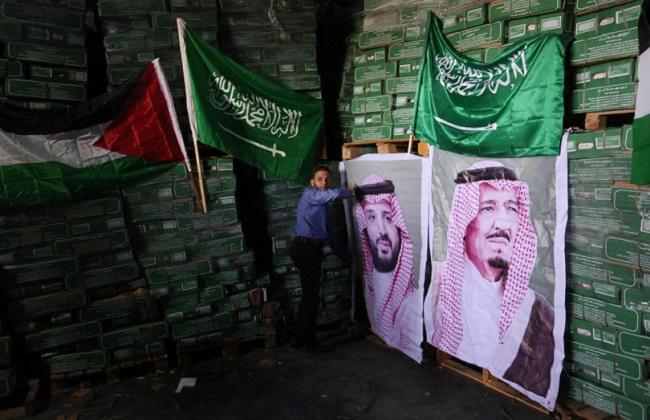
Maureen Clare Murphy
The Electronic Intifada / April 17, 2020
A mass trial of dozens of Palestinians and Jordanians of Palestinian origin in Saudi Arabia over vague allegations of links to terror groups is riddled with rights abuses, Human Rights Watch stated on Friday.
Authorities began the closed-door trial early last month after holding some of the 68 detainees, many of whom are long-term residents of the Arab Gulf monarchy, for nearly two years without charge, the rights group added.
Earlier this year, Amnesty International said that the arbitrary arrests were “part of a wider crackdown by the Saudi Arabian authorities on Palestinians residing in Saudi Arabia with a perceived link to Hamas.”
“Acute dangers”
Human Rights Watch’s deputy Middle East director Michael Page pointed to “Saudi Arabia’s long record of unfair trials,” and the “acute dangers to prisoners” posed by COVID-19.
One of the defendants, Mohammed al-Khudari, the 82-year-old former representative of Hamas to Saudi Arabia, has cancer.
He and his son, Hani al-Khudari, a 48-year-old IT professor at a Saudi university, were held incommunicado and in solitary confinement for the first three months of their detention, according to Amnesty.
“Family members of defendants described a range of abuses by Saudi authorities following the arrests, including enforced disappearances, long-term solitary confinement and torture,” Human Rights Watch stated.
A witness to a mass trial hearing on 8 March told the rights group that the judge was present in the courtroom for only 20 minutes.
The witness said that defendants were asked if they were guilty, and only then did the judge give them partial portions of their charge sheets “that did not include evidence or the basis of the charges.”
Family members said the charge sheets cited articles of Saudi law penalizing involvement with terrorist organizations.
A United Nations human rights expert has decried Saudi Arabia’s “unacceptably broad definition of terrorism” and other national security measures which have been used against “human rights defenders, writers, bloggers, journalists and other peaceful critics.”
Palestinians sacrificed for Israel alliance
In early 2018, Saudi crown prince Mohammad Bin Salman embarked on a high-profile US tour in which he promoted a supposedly transformational reform agenda for the country.
Part of that agenda was promoting the perception of a cosier Saudi relationship with Israel, which sees a common enemy in Iran.
Israel seeks non-aggression pacts with Arab Gulf states as years of clandestine ties have recently come into the open.
Efforts towards the normalization of relations between Israel and the Gulf states, led by Saudi Arabia, comes at the expense of Palestinian national liberation.
And it also comes at the expense of the basic liberties of the citizens of those Gulf states.
The malware produced by Israel’s notorious NSO Group has been implicated in the killing of Jamal Khashoggi, the Saudi journalist lured to his country’s Istanbul consulate where he was murdered and dismembered soon after Bin Salman’s US charm offensive.
Bin Salman is widely believed to be complicit in Khashoggi’s killing, likely having ordered it.
Amnesty International, whose staff were targeted with NSO Group malware, is suing the company to stop its role in abusive surveillance.
Israel’s cyber warfare industry has deep ties with the country’s military and intelligence apparatus, which uses Palestinians under military occupation as unwilling test subjects for systems that are then exported to other countries such as Saudi Arabia.
Maureen Clare Murphy is an associate editor of The Electronic Intifada and lives in Chicago












